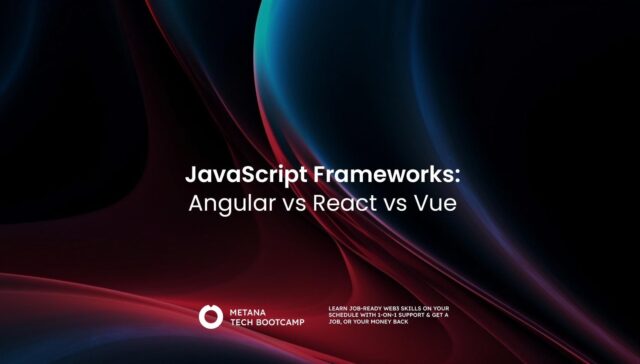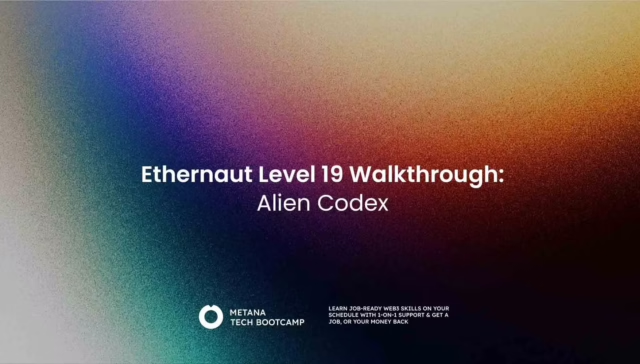Blockchain technology is really innovative, and smart contracts are a big part of that. Smart contracts are like automatic agreements that run themselves, but they have a problem: they can’t interact with the outside world on their own.
Chainlink is a solution that helps these smart contracts get information from outside the blockchain, like data feeds or APIs, which is essential for creating advanced apps. This article discusses Chainlink and Solidity integration, which enables smart contracts written in Solidity to become even more powerful and useful for developers by accessing off-chain data.
Why Do We Need Oracles?
Smart contracts, typically written in Solidity, are the backbone of dApps. They automate agreements and transactions on the blockchain in a transparent and verifiable manner. However, these contracts operate within a closed environment, unable to directly access external data sources or perform computations outside the blockchain.
For instance, imagine a decentralized insurance application built on a blockchain. To assess claims accurately, the smart contract needs real-world data like weather conditions or flight cancellations. Here’s where oracles come into play.
Oracles act as intermediaries, fetching data from external sources and delivering it securely to smart contracts. Chainlink, being a decentralized oracle network, leverages a network of independent nodes to ensure data integrity and tamper-proof delivery.
What is Chainlink?
Chainlink is a decentralized oracle network that ensures smart contracts can access off-chain data securely and reliably. Its infrastructure includes Chainlink Nodes, operated by a worldwide network of node operators, which fetch, aggregate, and deliver data to smart contracts.

A reputation system motivates these operators to provide precise and timely data, rewarding positive behavior and penalizing negative actions. Furthermore, Decentralized Oracle Contracts (DOCs) on the blockchain facilitate the data request process, detailing data sources, oracle selection, and security protocols. Chainlink also offers Price Feeds, which are pre-established data feeds that supply trusted and secure price information for various assets.
How to Integrate of Chainlink with Solidity?
Solidity, the most popular language for writing smart contracts on the Ethereum blockchain and EVM-compatible networks, offers a seamless integration with Chainlink oracles. This integration is facilitated through the use of Chainlink’s pre-built interfaces and libraries.
Here’s a breakdown of the key steps involved in integrating Chainlink with Solidity:
- Importing the Chainlink Aggregator Interface:
Solidity contracts can import the AggregatorV3Interface contract provided by Chainlink. This interface defines functions that your smart contract can use to interact with Chainlink oracles and retrieve data. - Specifying the Chainlink Network and Address:
Your Solidity code needs to specify the Chainlink network (e.g., Mainnet, Kovan testnet) you’re working with and the address of the relevant oracle contract. Chainlink provides pre-built oracle contracts for various data feeds, such as price feeds. - Requesting Data from the Oracle:
The smart contract can call functions like latestAnswer() or getAnswer(uint256 roundId) on the oracle contract to request specific data points. These functions return the latest data or data from a specific round, respectively. - Verifying Data and Taking Action:
Once the data is retrieved, the smart contract can verify the data’s validity using mechanisms like reputation scores and round information. Based on the retrieved data, the contract can then execute its pre-defined logic and automate actions.
Here’s a code snippet demonstrating a basic integration:
pragma solidity ^0.8.0;
import "@chainlink/contracts/src/v0.8/interfaces/AggregatorV3Interface.sol";
contract MyContract {
AggregatorV3Interface public priceFeed;
constructor(address _priceFeed) {
priceFeed = AggregatorV3Interface(_priceFeed);
}
function getLatestPrice() public view returns (int256) {
( , int256 answer, , , ) = priceFeed.latestRoundData();
return answer;
}
// Logic utilizing the retrieved price data
function performActionBasedOn() public {
// ...
}Benefits of Chainlink and Solidity Integration
The integration of Chainlink with Solidity unlocks a many benefits for developers building dApps:
- Access to Real-World Data
- Enhanced Security
- Increased Functionality
- Improved User Experience
- Reduced Development Time
- Scalability and Flexibility
Best Practices for Secure and Reliable Integration
Integrating Chainlink with Solidity effectively requires following key best practices: conduct security audits on your smart contracts to identify and mitigate vulnerabilities, particularly for handling sensitive data. Utilize Chainlink’s reputation system to select reliable oracles, ensuring the data’s trustworthiness. Implement data validation in your contracts to verify the accuracy of incoming data, considering aspects like timestamps and historical consistency.
Use a decentralized network of oracles to enhance data integrity and avoid single points of failure. Lastly, ensure clear documentation of your contract’s logic and data handling processes to enhance maintainability and transparency.
Let’s Take a Look At Some Use Cases,
The integration of Chainlink and Solidity unlocks a vast array of possibilities for dApps across various industries. Here are a few compelling use cases:
- Decentralized Finance (DeFi): Smart contracts can leverage Chainlink price feeds to automate loan approvals, margin calls, and liquidations in DeFi protocols. Additionally, Chainlink can be used to integrate with credit scores and KYC/AML data for more sophisticated risk assessments.
- Supply Chain Management: Blockchain-based supply chain platforms can utilize Chainlink to track the movement of goods, verify provenance, and trigger automated payments upon shipment confirmation with real-world logistics data.
- Decentralized Insurance (DInsurance): Chainlink oracles empower smart contracts in DApps to access flight cancellation data, weather information, and other relevant data points for automated claim processing and risk assessment.
- Prediction Markets: Decentralized prediction markets can leverage Chainlink to retrieve data on sporting events, election results, and economic indicators, enabling users to make informed bets based on real-world outcomes.
- The Internet of Things (IoT): Smart contracts can interact with real-world devices through Chainlink, enabling secure data exchange and triggering automated actions based on sensor readings or external events.
Conclusion
Chainlink and Solidity integration serves as a potent force driving the evolution of dApps. By bridging the gap between blockchains and the external world, this powerful duo empowers developers to build robust, secure, and feature-rich applications that can transform various industries. As the blockchain ecosystem continues to mature, Chainlink and Solidity will undoubtedly play a pivotal role in shaping the future of decentralized applications.

FAQs
What is Chainlink and how does it benefit dApp development?
- Chainlink is a decentralized oracle network that enables smart contracts to interact with external data securely, enhancing dApp functionality and reliability.
How does integrating Chainlink with Solidity improve smart contracts?
- Integration allows Solidity-based smart contracts to access real-time, reliable external data, increasing their functionality and application scope.
What are the key advantages of using Chainlink in blockchain applications?
- Chainlink provides secure, tamper-proof data feeds, ensuring smart contracts operate with accurate and timely information, crucial for decision-making processes.
Can Chainlink integration help in all types of dApps?
- Yes, Chainlink’s versatility in providing external data can benefit various dApp sectors, including finance, insurance, and supply chain management.
How does Solidity support smart contract development in blockchain?
- Solidity is a programming language designed for developing smart contracts on blockchain platforms, enabling automated, secure, and efficient contract execution.
What are smart contracts and how do they work?
- Smart contracts are self-executing contracts with the terms of the agreement directly written into code, automatically enforcing and executing the contract terms when conditions are met.
How does blockchain technology enhance dApp security?
- Blockchain’s decentralized nature and cryptographic security measures ensure data integrity and protection against unauthorized access in dApps.
What are decentralized applications (dApps)?
- dApps are applications that run on a blockchain or P2P network of computers, not controlled by any single entity, offering increased transparency and resistance to censorship.
Why is real-time data important in blockchain applications?
- Real-time data ensures that smart contracts react to current and relevant information, crucial for accurate and efficient decision-making in blockchain applications.
What is the role of data oracles in blockchain?
- Data oracles act as bridges between blockchains and external systems, allowing smart contracts to interact with off-chain data securely and reliably.




